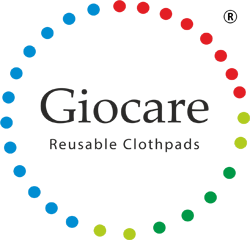Monster of Period Myths in India
- Don't enter the kitchen or temple
- Don't touch the pickle, milk, curd, or even a menstruating woman
- Don't wash the hair; don't bathe
- Don't water plants
- Sleep/sit outside; eat separately
- Rinse used disposable pad with water before throwing
- Period blood is dirty and impure
- Don't eat sour things
- Don't talk about your periods with anyone or in public
Haven't we all heard and obeyed many/some of the above-mentioned commands while we were on our period?
Our mothers and grandmothers always had a thing or two to forbid us during
'those' days. And we submitted without any resistance because elders always
suggest good for us.
Yes, of course they do.
But sometimes age-old practices are not discarded just because of the fear of ' something bad might happen if we don't follow it', even though there is no logical or real-world reasoning behind it.
This is exactly the case with period-related myths and taboos which are deeply engraved in the mindset of our elders; most have cultural and religious associations.
How and why these restrictions must have come in place?
Everything happens for a reason. But the happenings should change with time
and requirement.
Let's rewind.
Hundreds and thousands of years back human race was evolving and mankind was gradually and slowly accommodating to being a social animal.
Although there were hardly any resources and facilities at that time but menstruating women were still managing their bleeding with whatever they had.
In most probability, due to lack of proper absorbent material/product, period blood must be dripping around and staining the areas where a woman having her period must be sitting.
Hence the prohibition of entering the house (especially the kitchen area) or making them sit outside the living premise must have come in place.
Okay. That makes sense.
Also, since most women experience discomfort and pain during periods, to give them rest, they must have been asked to not get involved in the household chores during those days.
Restriction on bathing must have been implemented because in those days, there was no provision for separate bathrooms. Everyone used to go to rivers or ponds. If a menstruating woman entered the pond to bathe, the whole water will get mixed with the menstrual blood and others would not like to use the same water to use. Hence the prohibition of bathing/washing hair was understandable at that time.
Not letting the woman 'touch the pickle' or any other food item during period days also has logical reasoning behind it for the women of the primitive era. Just imagine the state of personal hygiene if someone hasn't taken bath for 4-5 days. In most likelihood, if that woman (or any person for that matter) directly touches any food item, there is a fair possibility of that food getting rotten due to cross-contamination.
The crux of the matter is that when all these restrictions must have been imposed on menstruating women, it made sense in those times because of the lack of resources and availability of period products.
Now, fast forward to the present time.
Today, the best sanitary hygiene products ranging from super-absorbent pads to tampons, even menstrual cups are available, and so, there is no chance of menstrual blood dripping all around the house.
With the advent of innovative electronic gadgets to cook, clean and wash, physical labour has become minimal. So, there is no need to be bed-bound for all the menstruating days.
Talking of maintaining hygiene/bathing/washing hair, today we have separate bathrooms and a well-in-place drainage system. All the menstrual blood while bathing will only go down the drain and do not get mixed up with any other source of water
Reasonably thinking, all the restrictions, prohibitions, and limitations imposed
on menstruating women made sense when not enough resources were
available.
But today none of them hold any scientific, logical, or coherent reasoning.
But today none of them hold any scientific, logical, or coherent reasoning.


Role of Religion
Religion plays a pivotal role in defining certain restrictions. In most cultures
and faiths, period blood is considered 'impure' and hence women are not
supposed to participate in religious rituals during menstruation.
For most of the period taboos are sanctioned by religion and beliefs that one considers as the foundation of society. Religious taboos and restrictions on menstruating women are often compounded by traditional associations with evil spirits, shame, and embarrassment surrounding reproduction.
For most of the period taboos are sanctioned by religion and beliefs that one considers as the foundation of society. Religious taboos and restrictions on menstruating women are often compounded by traditional associations with evil spirits, shame, and embarrassment surrounding reproduction.
Strategies to Combat Period Myths
- By creating awareness of menstrual health and hygiene in girls at a young age, so that they are aware of the whole biological process and comprehend it in a positive way
- Community-based menstrual health education campaigns can help a lot by clearing doubts, and myths and finding logical reasoning behind the whole process
- Training school teachers in menstrual health and hygiene management is also a good idea for a wider reach
Takeaway
– Menstruation is nothing but a very normal biological phenomenon, and
women have the power of procreation only because of this virtue.
– There is no relevance to age-old myths and taboos associated with menstruation.
– Religion is a sensitive and personal matter; performing or not performing religious rituals during menstruating is an individual's choice
– Curb and stand against all the ills and discriminations happening in the name of menstruation
– Practice safe menstrual hygiene; use clean period product.
– There is no relevance to age-old myths and taboos associated with menstruation.
– Religion is a sensitive and personal matter; performing or not performing religious rituals during menstruating is an individual's choice
– Curb and stand against all the ills and discriminations happening in the name of menstruation
– Practice safe menstrual hygiene; use clean period product.
Sadly, menstruation is probably the least talked about and most ill-understood biological concept.
Despite being a natural physiological function of the female body, just like digestion or respiration, the menstruation discourse is often taken up by reticence.
Believing these myths makes it more difficult for women to talk about their periods, and to know whether or not their menstrual cycle is normal and healthy.
Misconceptions and myths lead to shame, silence, and poor reproductive health outcomes for women.
Let's all work towards creating a taboo-free society.
Let's resonate – Menstruation is not a problem; unreasonable menstrual myths are!
Let's resonate – Menstruation is not a problem; unreasonable menstrual myths are!


Dr Sania Siddiqui
-
Dr Sania Siddiqui#molongui-disabled-link
-
Dr Sania Siddiqui#molongui-disabled-link
-
Dr Sania Siddiqui#molongui-disabled-link
-
Dr Sania Siddiqui#molongui-disabled-link


